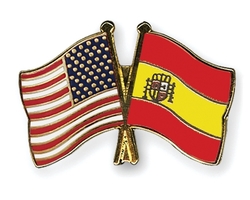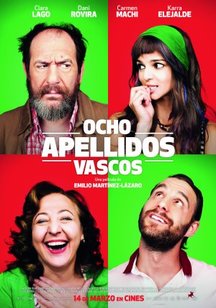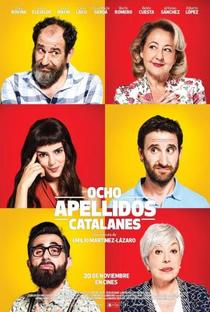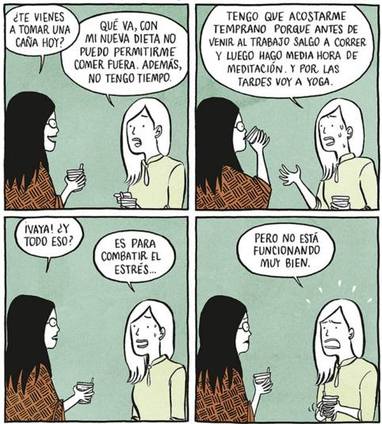Being a CULTURal ambassador
WHAT DOES IT MEAN TO BE A "CULTURAL AMBASSADOR"?
 As a Fulbrighter, you are expected to be a cultural ambassador of the United States. You hopefully see this not only as a responsibility, but also as an opportunity. Nonetheless, it may be difficult to grasp exactly what being a cultural ambassador entails during your Fulbright grant. In the words of Senator Fulbright himself:
As a Fulbrighter, you are expected to be a cultural ambassador of the United States. You hopefully see this not only as a responsibility, but also as an opportunity. Nonetheless, it may be difficult to grasp exactly what being a cultural ambassador entails during your Fulbright grant. In the words of Senator Fulbright himself:
“…Man’s struggle to be rational about himself, about his relationship to his own society and to other peoples and nations involves a constant search for understanding among all peoples and all cultures – a search that can only be effective when learning is pursued on a worldwide basis.”
Indeed, being a cultural ambassador requires engagement with both your home culture and your host culture. And this type of engagement is a “constant search.” Some days you may feel isolated, while other days you’ll be dreaming in Spanish, and it is precisely this constant search, with its ups and downs, that can make your Fulbright grant so rewarding. As a friendly reminder, please remember that we are here for you. Please take full advantage of our mental health resources. Grantees should always feel the right to be able to contact the Fulbright Commission office.
The final key idea Senator Fulbright highlights is the pursuit of learning. You are all here to carry out different academic projects, but your educational experience in Spain goes well beyond your proposed research topic or field of study. As a cultural ambassador, you have the opportunity not only to delve into a foreign language and culture, but also have the chance to view your own culture from a different perspective. If you are deliberate about reflecting on your home culture and background in addition to your host culture, you will be able to gain a deeper understanding of both, and this will enrich your interaction with others.
WHAT IS AMERICAN* CULTURE?
*The term “American,” when used in Spain and other countries, may refer to the entire American continent, not only to the United States. On this page, we use “American” to refer to U.S. American culture. In Spanish, you should try to say Estados Unidos and estadounidense.
 You may be wondering how you can possibly represent “American culture” when the United States is comprised of so many distinct cultures and backgrounds. The richness and diversity of cultures in the U.S., however, is meant to be represented in the Fulbright Program and its grantees – there is no singular cultural background that grantees represent. Your cultural experience in the United States is unique, and you were accepted to the program in part because of your ability to serve as an ambassador for it. In short, you are in Spain to represent your culture, however you define it, and to share it with the Spaniards you will meet.
You may be wondering how you can possibly represent “American culture” when the United States is comprised of so many distinct cultures and backgrounds. The richness and diversity of cultures in the U.S., however, is meant to be represented in the Fulbright Program and its grantees – there is no singular cultural background that grantees represent. Your cultural experience in the United States is unique, and you were accepted to the program in part because of your ability to serve as an ambassador for it. In short, you are in Spain to represent your culture, however you define it, and to share it with the Spaniards you will meet.
The role of the cultural ambassador becomes challenging when you are viewed as a representation of all American culture(s), and naturally there are many ways to be an American that will not apply to you. Especially in the current political climate, you will likely be asked to answer questions on behalf of all Americans (i.e. “How could you vote for [insert politician here]?” or “Why are all Americans [insert negative stereotype here]?”). Remember in these situations that the “you” is usually not referring to you as individual at all, but rather to the United States as a whole. Past grantees have suggested planning ahead of time ways in which you might respond to such questions about politics and other controversial issues in the U.S. By reading a Spanish newspaper online before your arrival, you can see which topics in U.S. current events are of interest to Spaniards and the way in which they are discussed. (More on Spanish media in the subsequent section).
You may also want to reflect on the place of Spanish and Hispanic cultures in the United States. To get started you may want to read the article titled “¿Qué español se habla en Estados Unidos?” from the Instituto Franklin-UAH’s Diálogo Atlántico.
CONFRONTING STEREOTYPES ABOUT THE UNITED STATES
Many grantees are initially surprised by the lack of “political correctness” in Spain. Spaniards may ask you questions about your culture that you find jarring or insensitive. In these instances, it is important to realize that Spaniards are often much more direct than many native English speakers. A comment or question may seem insensitive to you, but the Spaniard likely does not see it that way. In these circumstances, grantees have noted that it is helpful to understand that these comments rarely reflect cultural insensitivity, but rather general curiosity about a topic that is largely unknown to Spaniards.
Always keep in mind that a major objective of the Fulbright Program is to introduce American culture to people from other countries who might otherwise have little exposure to the United States apart from the media. As such, the Spanish people with whom you’ll interact every day, from your young students to your elderly neighbor, may have a particular view of the United States that has been formed by the media and popular culture. You will likely encounter some Spanish perceptions of the United States that you find humorous and some observations may seem quite accurate, while other perceptions are more serious or you may even find offensive. Past grantees have often found that, while you cannot control how Spaniards or others view the United States (and often by extension, how they view you as an individual), you can control how you react to their expressed views and comments.
If you are inside the classroom, as a TA for example, you may treat such comments or observations as a learning experience for the students. Outside the classroom, in everyday life, all grantees are sure to encounter these cultural misconceptions at some point. Being a cultural ambassador does not mean you always must actively educate others about your culture or directly confront every stereotype. You may choose to address the misconception, ignore the comment, or remove yourself from the situation, depending on the specific situation and what you feel most comfortable with. However, most grantees reflect most positively on those instances when they took the opportunity to engage in a conversation that investigated Spanish culture alongside that of the U.S. and we encourage you to do the same in those situations in which you feel comfortable.
CONFRONTING SPANISH STEROTYPES: BREAKING DOWN BARRIERS
 Just as it is impossible to define a singular U.S. American cultural experience, it is impossible to identify a singular Spanish culture. All it takes is a viewing of Ocho apellidos vascos (a 2014 Spanish comedy we recommend) to see that Spaniards carry their own stereotypes and generalizations for the different regions of Spain (comunidades autónomas). While this movie is a comedy and full of exaggeration, an important takeaway is the vast cultural diversity that you will find in Spain, and the vast differences between comunidades autónomas. Cultural stereotypes are unavoidable, and can actually be helpful in the early stages to develop a preliminary understanding of Spanish and local culture. Ultimately, however, they are crude conceptual devices that you will largely discard as you acquire a deeper understanding of the nuances of the life and culture of those with whom you associate.
Just as it is impossible to define a singular U.S. American cultural experience, it is impossible to identify a singular Spanish culture. All it takes is a viewing of Ocho apellidos vascos (a 2014 Spanish comedy we recommend) to see that Spaniards carry their own stereotypes and generalizations for the different regions of Spain (comunidades autónomas). While this movie is a comedy and full of exaggeration, an important takeaway is the vast cultural diversity that you will find in Spain, and the vast differences between comunidades autónomas. Cultural stereotypes are unavoidable, and can actually be helpful in the early stages to develop a preliminary understanding of Spanish and local culture. Ultimately, however, they are crude conceptual devices that you will largely discard as you acquire a deeper understanding of the nuances of the life and culture of those with whom you associate.
As a cultural ambassador, it is important to remember that the Fulbright Program is an exchange program, and cultural understanding must flow in both directions.

Just as you are here to share your own culture and perspective to breakdown stereotypes of U.S. culture, you are also here to question and add nuance to your own perspective of Spanish culture and so you must be open to experiences and perspectives shared with you. Grantees often comment that one of their biggest regrets from their Fulbright experience was not getting to know more Spaniards. Particularly if you are in a region with many other grantees, it is easy and comfortable to spend a great deal of time with fellow Fulbrighters. While you are certainly encouraged to get to know the other grantees in your region, it is important not to spend all of your time exclusively with others from the United States. Not only does meeting Spaniards offer obvious benefits – language acquisition, cultural immersion, etc. – but grantees often note that it is one of the best remedies for feelings of isolation and loneliness that are common side effects of culture shock. Key to breaking down barriers of isolation is feeling like you are part of the local community, instead of a tourist on an extended visit. Grantees report feeling the latter at least occasionally during the grant, and the challenge is precisely that: getting out of your “comfort zone” and getting involved in the community. One important recommendation from past grantees is to live with Spanish roommates. You will have an immediate “in” with Spaniards of roughly your own age.
It’s important to be open-minded when it comes to immersing yourself in another culture. Being open-minded is the way we learn and understand concepts.Not only do you represent being a Fulbright Grantee during your time here, but you also represent being an American from the states, which is why it is crucial to uphold a positive and welcoming image. Besides breaking down American stereotypes while abroad, you should also open yourself up to new perspectives in order to gain various types of experiences to understand Spaniards better. Understanding the locals will not only help you gain new knowledge, but will also help you adapt better.
COME PREPARED
It is never too early to begin your immersion process. The summer before your grant is the ideal time to begin reading a Spanish newspaper online, watching Spanish movies, reading about Spanish history and politics, and working to improve your written and oral comprehension. See the next section in the Culture tab, titled “Suggested Reading and Media,” for a comprehensive list. Note that not all of the books are from Spain, but also include some well-known authors and titles from the Spanish-speaking world and some English-language fiction and non-fiction about Spain. The more informed you are when you arrive, the more rewarding your time in Spain will become. Knowing more about Spanish current events and cultural topics will also help you connect with Spaniards early on.

The cultural diversity of Spain is often connected to linguistic diversity. You probably know that Spain has several languages that are co-official with castellano (Spanish), in addition to various dialects, in various autonomous communities. If you are going to Asturias, Cataluña, Galicia, Islas Baleares, País Vasco, or Valencia, you should be aware of the prevalence of the language, dialect, or linguistic particularities of your region. We are not recommending that you attempt to learn your region’s co-official language (etc.) the summer before you arrive, but it will probably be worth your while to research your host region’s unique culture and its relationship with the rest of the country. It could be particularly helpful to read news sources from that specific region. Even when Spanish is the only official language in your region, you should still be aware of the variety of accents and dialects that Spain represents. If you are in Andalucía or Canarias, for example, the accent and some vocabulary will be very different than the “textbook” Spanish accent to which you may be accustomed.
While it is obviously impossible to study all of Spanish history, culture, and language over the summer, it is recommended that you choose at least one facet of Spain that particularly interests you or that you would like to know more about, and start from there. You will have plenty of time for cultural exploration and immersion during your grant period, but starting early can enrich this process even more.
MEETING SPANIARDS

Accept invitations from Spaniards when they come your way!
As you adjust to the challenges of a new culture, remember to take a deep breath and “tomar una caña [a small beer] con amigos.”
It is easier said than done! At all stages of the grant period, grantees may become frustrated about the challenges of meeting Spaniards, particularly Spaniards their own age. Especially if you studied abroad in Spain, you may be particularly shocked during your Fulbright grant to find that it is now much harder to make Spanish friends. Previous grantees have expressed the importance of realizing the differences between studying abroad and being on a Fulbright grant abroad. Most of you are now out of a university setting, and you may be in an environment in which your colleagues are older. In any case, you are experiencing the difficulty of meeting new people that comes with any move to a new city, and it is magnified by the challenges that come with living in a new country. The best advice from past grantees is to be proactive and seek out opportunities to meet locals.
Grantees’ tips for meeting Spaniards:
- As mentioned above, live with Spanish-speaking roommates – If possible, try to choose a living situation in which you will live with another Spaniard or Spanish-speaking person. This is a common regret of grantees who lived solely with other Fulbrighters or English speakers.
- Take a class (outside of Spanish class) – salsa dancing, painting, rock climbing, Arabic language – these are just a few examples of ways grantees have continued to pursue their interests while meeting locals at the same time.
- Independent projects and/or volunteering – if you are a TA, you are required to pursue a side project, but all Fulbrighters are encouraged to get involved in the community in some way. Check out the Guide, get in touch with the Commission, and, if provided, attend the U.S. Embassy presentation to learn about ways you can volunteer while in Spain.
- Formal Intercambios – Many grantees have found intercambio language exchange websites to be useful in their search for meeting Spaniards and improving their language skills. Spaniards of all ages are interested in English-Spanish conversation exchanges (intercambios). Of course, intercambios also exist for those of you who would like to practice the regional language or dialect.
- Some popular websites for intercambios include:
- http://www.conversationexchange.com/?lg=es
- http://www.intercambiodeidioma.com/
- http://www.openlanguageexchange.com/
- You can find a list of bars and restaurants offering intercambios around Madrid here: www.esmadrid.com/locales-de-intercambio-de-idiomas